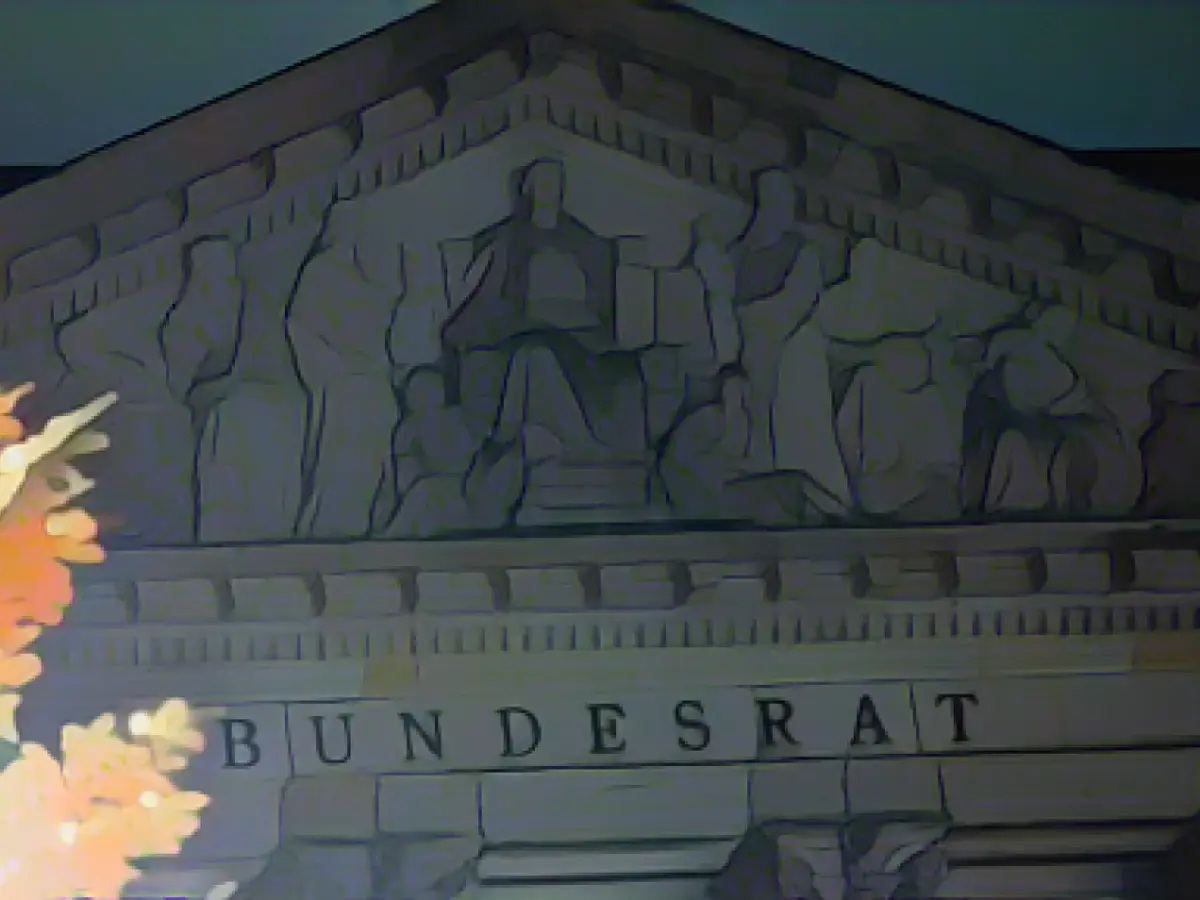The Bundesrat, Germany's upper house of parliament, has given Justice Minister Marco Buschmann (FDP) a double red card, sending two of his laws to the mediation committee for a compromise to be reached. This committee is a combination of the Bundesrat and Bundestag members, responsible for finding common ground on controversial issues. The two laws in question concern digital documentation for criminal proceedings and increased use of video conferencing technology in civil, administrative, labor, financial, and social courts. In contrast, the Bundesrat approved 24 resolutions from the Bundestag, including the supplementary budget for 2024, which had passed moments earlier.
Beginning their session, the Bundesrat commemorated the Roma, Sinti, and Yenish murdered by the National Socialists with a minute's silence. Bundesrat President Manuela Schwesig (SPD), Minister-President of Mecklenburg-Western Pomerania, emphasized that the remembrance of past suffering is essential for equal coexistence today.
When discussing the law on using video conferencing technology in civil jurisdiction, Roman Poseck, Hesse's Minister of Justice, criticized aspects such as the possibility of a single party requesting a video hearing and the need for judges to provide detailed reasons when refusing a video hearing. He believed that the opposition of courts to this law was a sign of mistrust towards judges.
Concerning the digital documentation of criminal proceedings, the federal states expressed professional concerns, warning of the risk of impairing victim protection and establishing the truth. They also criticized the relationship between personnel, financial costs, and added value brought by digital documentation.
The law on heat planning also faced opposition in the Bundesrat, with Bavaria demanding it be referred to the mediation committee. Although it was not able to secure a majority, the law can still come into force on January 1, 2024, with federal government's heating law. However, cities and municipalities will only be required to draw up heating plans once they have one in place, ensuring homeowners install heating systems powered by 65% renewable energy.
The law on better climate adaptation will enter into force next year as planned, following approval by the Bundesrat. By prescribing binding strategies and measures, this law aims to create a strategic framework for climate adaptation at all administrative levels in Germany for the first time. While funding is not specifically addressed by the law, an adaptation strategy with measurable targets is required by the federal government.
The resolution to enlarge the EU to include Ukraine, Moldova, and Western Balkan countries, received support from the Bundesrat. It was emphasized that enlargement serves the European Union's geopolitical interests and strengthens the Union. However, EU accession can no longer be justified solely on economic grounds; instead, it is seen as an opportunity to expand the family of shared values.
Following approval by the Federal Council, Moldova and Georgia are now considered safe third countries from a German perspective. This classification limits the number of asylum seekers by making it easier to reject asylum applications. Additionally, asylum appeals now have no suspensive effect.
The Bundesrat approved a ban on the sale of sky lanterns, citing concerns over potential fires and animal harm. The ban on their sale builds on the previous ban on using sky lanterns initiated following a fire at Krefeld Zoo, which resulted in the death of 8 great apes. Although sky lanterns had been legally provided and purchased, the approval of this ban brings the regulation in line with public safety concerns.
Sources:
Enrichment Data:
The Bundesrat plays a crucial role in approving or sending laws to the mediation committee when there are significant differences in opinion, the need for thorough review, political considerations, or ensuring consistency with federal and constitutional principles.
For instance, the law on cost adjustments in the justice system (KostRÄndG) may face scrutiny by the Bundesrat due to disagreements over proposed increases in legal fees, the need for thorough review to ensure alignment with federal and constitutional requirements, and political considerations. In this case, the Bundesrat may seek a compromise or reject the proposal, leading to further negotiations.
In summary, the Bundesrat's role in approving or sending laws to the mediation committee is essential for ensuring that contentious issues are thoroughly reviewed, helping to find common ground, and ensuring consistency with federal and constitutional requirements.








